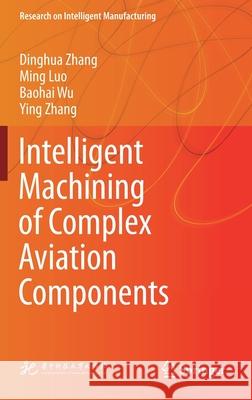Intelligent Machining of Complex Aviation Components » książka
topmenu
Intelligent Machining of Complex Aviation Components
ISBN-13: 9789811615856 / Angielski / Twarda / 2021 / 198 str.
Kategorie:
Kategorie BISAC:
Wydawca:
Springer
Seria wydawnicza:
Język:
Angielski
ISBN-13:
9789811615856
Rok wydania:
2021
Wydanie:
2021
Numer serii:
000827485
Ilość stron:
198
Waga:
0.47 kg
Wymiary:
23.39 x 15.6 x 1.27
Oprawa:
Twarda
Wolumenów:
01
Dodatkowe informacje:
Wydanie ilustrowane











